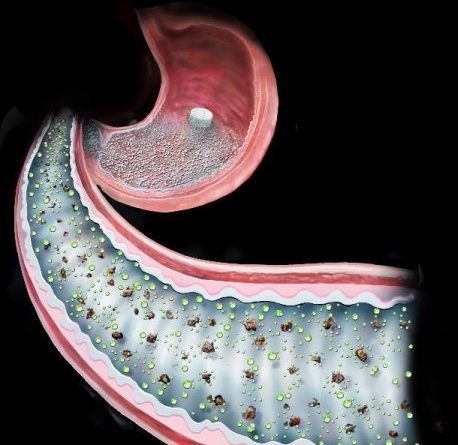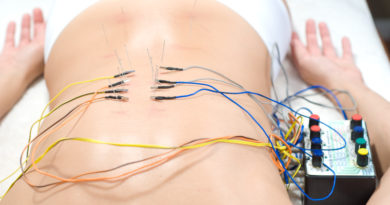Gut-coating, a potential treatment for diabetes
A team from Brigham and Womens Hospital in Boston reports on results of a preclinical study in which an oral agent was administered in rats to deliver a substance that could temporarily coat the intestine to prevent nutrient contact with the lining in the proximal bowel and avoid post-meal spikes in blood sugar.
“We envision a pill that a patient can take before a meal that transiently coats the gut to replicate the effects of surgery,” said co-senior author Jeff Karp, PhD, a bioengineer and principal investigator at BWH. “Over the last several years, we’ve been working with our surgical colleagues on this idea and have developed a material that meets an important clinical need.”
Surgery in a Pill
They selected a commonly used FDA-approved drug in the treatment of gastrointestinal ulcers known as sucralfate. The team modified the substance into a novel material that can coat the lining of the intestine. The engineered compound, referred to as LuCI (Luminal Coating of the Intestine), can be made into a dry powdered form that can be encapsulated as a pill.
The researchers found that once in the intestine of rats, LuCI can coat the gut, forming a thin layer to limit contact by the nutrients and lowers blood glucose response after a meal. After a meal, blood sugar levels rise and can stay elevated over time. However, one hour after LuCI was administered to the rats, the response to glucose was lowered by 47 percent. The team found that this response was temporary, and after three hours, the effect essentially disappeared.
The team is now testing the effect of short- and long-term use of LuCI in diabetic and obese rodent models. They also plan to advance some of their pilot studies showing that LuCI can be used to deliver drugs, including proteins directly to the gastrointestinal tract.
“Gastric bypass is one of the best studied surgeries in the world, and we know that it can lead to many benefits including positive effects for blood pressure, sleep apnea and certain forms of cancer, and a remarkably fast and weight-independent improvement in diabetes,” said Tavakkoli, co-senior author of the study. “Having a transient coating that could mimic the effects of surgery would be a tremendous asset for patients and their care providers.”
“What we’ve developed here is essentially, ‘surgery in a pill,'” said co-lead author Yuhan Lee, PhD, a materials scientist in the BWH Division of Engineering in Medicine. “We’ve used a bioengineering approach to formulate a pill that has good adhesion properties and can attach nicely to the gut in a preclinical model. And after a couple of hours, its effects dissipate.”
- Adolescents Living With Diabetes - August 6, 2022
- Diabetes Insipidus Symptoms, Causes, & Prevention - July 26, 2022
- Insulin Shortage May Affect Almost Half of the Diabetics by 2030 - November 24, 2018




